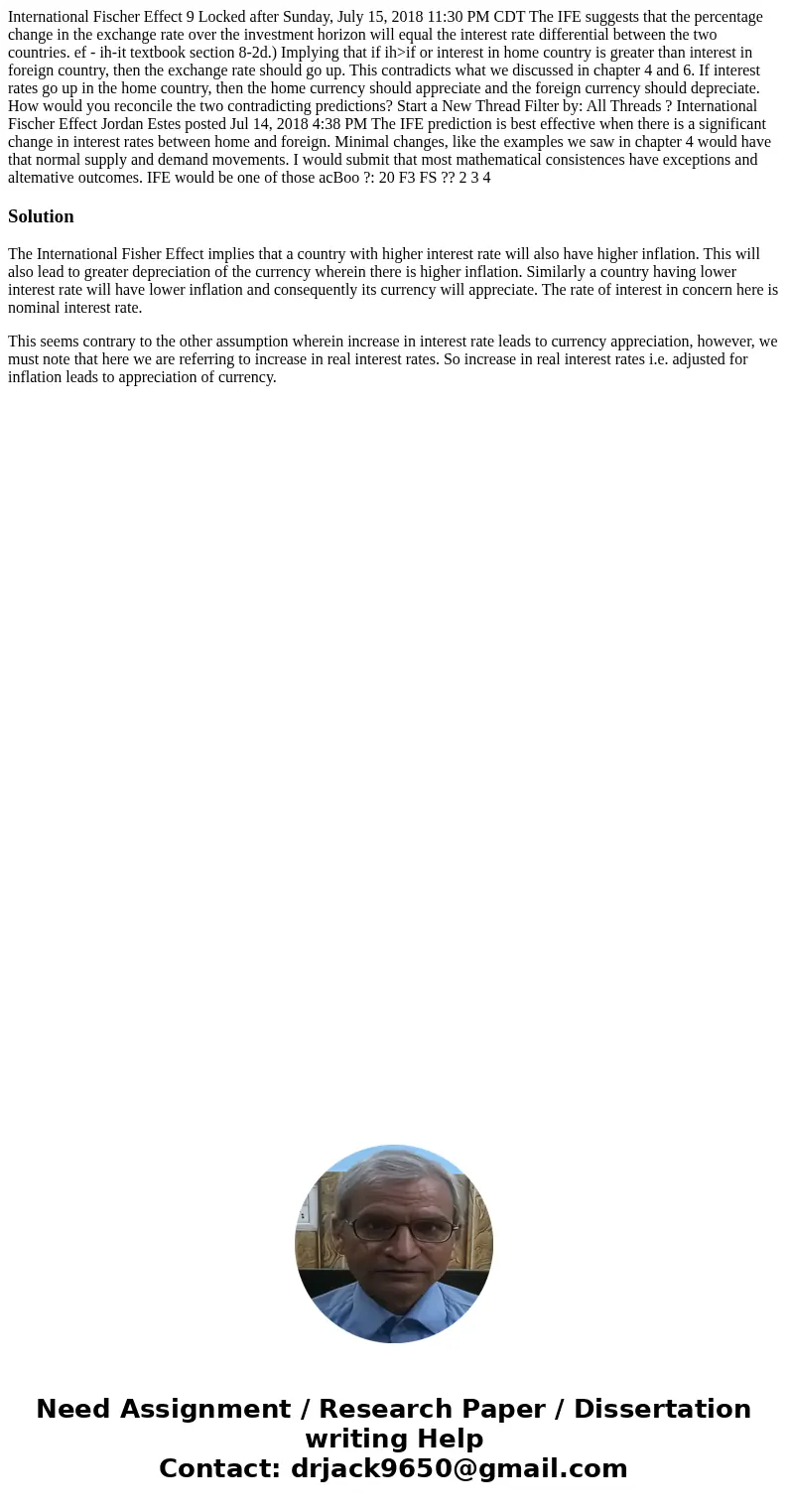International Fischer Effect 9 Locked after Sunday July 15 2
International Fischer Effect 9 Locked after Sunday, July 15, 2018 11:30 PM CDT The IFE suggests that the percentage change in the exchange rate over the investment horizon will equal the interest rate differential between the two countries. ef - ih-it textbook section 8-2d.) Implying that if ih>if or interest in home country is greater than interest in foreign country, then the exchange rate should go up. This contradicts what we discussed in chapter 4 and 6. If interest rates go up in the home country, then the home currency should appreciate and the foreign currency should depreciate. How would you reconcile the two contradicting predictions? Start a New Thread Filter by: All Threads ? International Fischer Effect Jordan Estes posted Jul 14, 2018 4:38 PM The IFE prediction is best effective when there is a significant change in interest rates between home and foreign. Minimal changes, like the examples we saw in chapter 4 would have that normal supply and demand movements. I would submit that most mathematical consistences have exceptions and altemative outcomes. IFE would be one of those acBoo ?: 20 F3 FS ?? 2 3 4 
Solution
The International Fisher Effect implies that a country with higher interest rate will also have higher inflation. This will also lead to greater depreciation of the currency wherein there is higher inflation. Similarly a country having lower interest rate will have lower inflation and consequently its currency will appreciate. The rate of interest in concern here is nominal interest rate.
This seems contrary to the other assumption wherein increase in interest rate leads to currency appreciation, however, we must note that here we are referring to increase in real interest rates. So increase in real interest rates i.e. adjusted for inflation leads to appreciation of currency.

 Homework Sourse
Homework Sourse